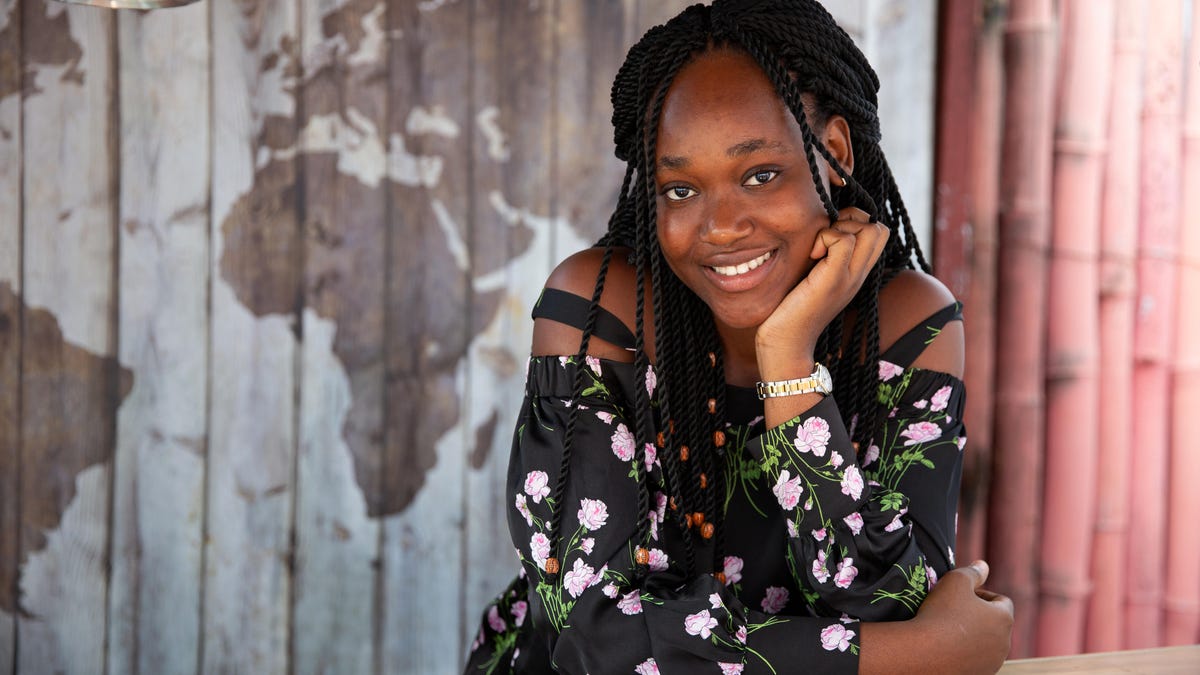Facial recognition tech designed to identify African faces wins engineering award
Racial bias is a well-documented problem in facial recognition technology. But as Charlette N'Guessan shows, it doesn't have to be.

Charlette N'Guessan is originally from Cote D'Ivoire and now works out of Ghana.
Facial recognition has a reputation problem. What could be an exciting new technology with the potential to make our lives easier, safer and more secure has been blighted by reports that it repeatedly fails when asked to correctly identify the faces of Black people.
But pioneering software engineer Charlette N'Guessan from Ghana has presented a different vision of what facial recognition technology is capable of, with her own product that's specifically designed to identify African faces.
Facial recognition tools built in the US and other Western countries have often been created by white people and trained on data sets of white faces, meaning that when it comes time to identify people of color -- and Black people in particular -- it more frequently results in false matches or results. The consequences when facial recognition gets things wrong can be serious -- ranging from embarrassing to deeply harmful -- especially as the technology is being trialed and increasingly used by police forces around the world.
The westernized tech industry often treats the problem of racial bias in facial recognition as being hard to crack. But 26-year-old N'Guessan believes that as facial recognition technology matures, there's no reason it shouldn't be able to identify all kinds of different faces -- it's just a matter of ensuring the algorithm is trained robustly, using a diverse data set.
"The more you train your model, the more your model is able to identify more faces," she said in an interview with CNET. "We're happy that our system is able to give a high level of accuracy."
Last week, N'Guessan's work was recognized formally when she became the first woman to be awarded the Africa Prize for Engineering Innovation. Founded and supported by the UK's Royal Academy of Engineering, it is Africa's biggest award celebrating innovation.
"It is essential to have technologies like facial recognition based on African communities, and we are confident their innovative technology will have far reaching benefits for the continent," said Rebecca Enonchong, Africa Prize judge and Cameroonian entrepreneur, in a statement.
Cross-continent journey to entrepreneurship
N'Guessan is the daughter of a high school mathematics teacher, and at a young age discovered her own strengths also lay in math and science. She pursued a computer science degree in her home country of Cote D'Ivoire, before moving to Ghana to start her business, which was officially founded in September 2018.
Together with her three co-founders, she developed BACE API, software designed to use a combination of facial recognition and AI to remotely verify people's identities using phone cameras or other existing systems. Using short video clips or live images, the software can tell a real person apart from a photograph and can be built into an array of different products -- a banking app, for example.
The motivation behind this project, said N'Guessan, was research revealing that Ghanaian financial institutions had a huge fraud problem, largely due to cybersecurity concerns. They were spending a lot of money attempting to resolve the problem, so she and her team worked on a solution that could integrate into their existing systems.
She's been challenged over whether facial recognition is the right choice of biometric technology to pursue, but is confident in her decision. "In Africa we are more familiar with fingerprints, but we believe that facial recognition is more like a natural biometric technology," she said.
The arrival of COVID-19 this year reassured her they had made the right choice to go with facial recognition over fingerprints, as people became more wary about physical contact, she added. "Facial recognition is one of the best options ... that in reality is valuable to businesses right now."
Along with accolade of the Africa Prize, N'Guessan was awarded £25,000 ($32,000) in prize money, which will be immediately reinvested into the project.
"I really want to invest the prize's financial support in the development part, hire more people, continue small," she said. "If we have more talent ... we can go far, so we are really open for collaboration."
Her company might be operating out of West Africa, she added, but she is open to the idea of extending out and forming partnerships in East Africa, southern Africa and beyond.

